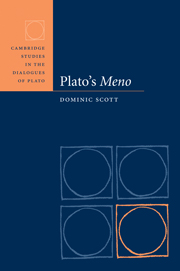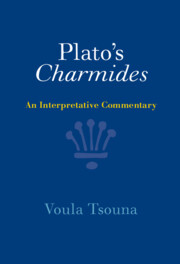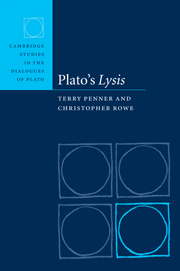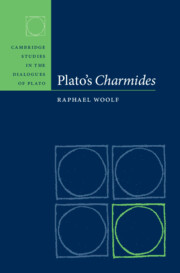Plato's Meno
Given its brevity, Plato's Meno covers an astonishingly wide array of topics: politics, education, virtue, definition, philosophical method, mathematics, the nature and acquisition of knowledge and immortality. Its treatment of these, though profound, is tantalisingly short, leaving the reader with many unresolved questions. This book confronts the dialogue's many enigmas and attempts to solve them in a way that is both lucid and sympathetic to Plato's philosophy. Reading the dialogue as a whole, it explains how different arguments are related to one another and how the interplay between characters is connected to the philosophical content of the work. In a new departure, this book's exploration focuses primarily on the content and coherence of the dialogue in its own right and not merely in the context of other dialogues, making it required reading for all students of Plato, be they from the world of classics or philosophy.
Reviews & endorsements
'Dominic Scott's new monograph on Plato's Meno is a tour de force. Readers of Plato in general, and this extensively-mined dialogue in particular, will be aware of how high the standards have now been set for writing about Plato as both literary genius and philosophical pioneer, by Taylor, Cornford, Vlastos and others. They will be correspondingly impressed by how successfully Scott's beautifully written work equals and sometimes surpasses these standards, while admirably avoiding both the fanciful and the anachronistic.' Journal of Hellenic Studies
Product details
No date availablePaperback
9780521104685
252 pages
229 × 152 × 15 mm
0.38kg
Table of Contents
- Introduction
- Part I:
- 1. The opening:
- 70a–71d
- 2. The first definition:
- 71e–73c
- 3. A lesson in definition:
- 73c–77d
- 4. The third definition:
- 77b–79e
- 5. Meno as interlocutor
- Part II:
- 6. The stingray:
- 79e–80d
- 7. 'Meno's paradox':
- 80d–81a
- 8. The emergence of recollection:
- 81a–e
- 9. The argument for recollection:
- 82b–85d
- 10. The conclusion:
- 86b6–c2
- Part III:
- 11. The method of hyposthesis:
- 86c–87c
- 12. Virtue is teachable:
- 87c–89c
- 13. Virtue is not teachable:
- 89e–96d
- 14. Virtue as true belief:
- 96d–100b
- 15. Irony in the Meno: the evidence of the Gorgias
- 16. Meno's progress
- Conclusion
- Appendices
- References
- Indexes.






